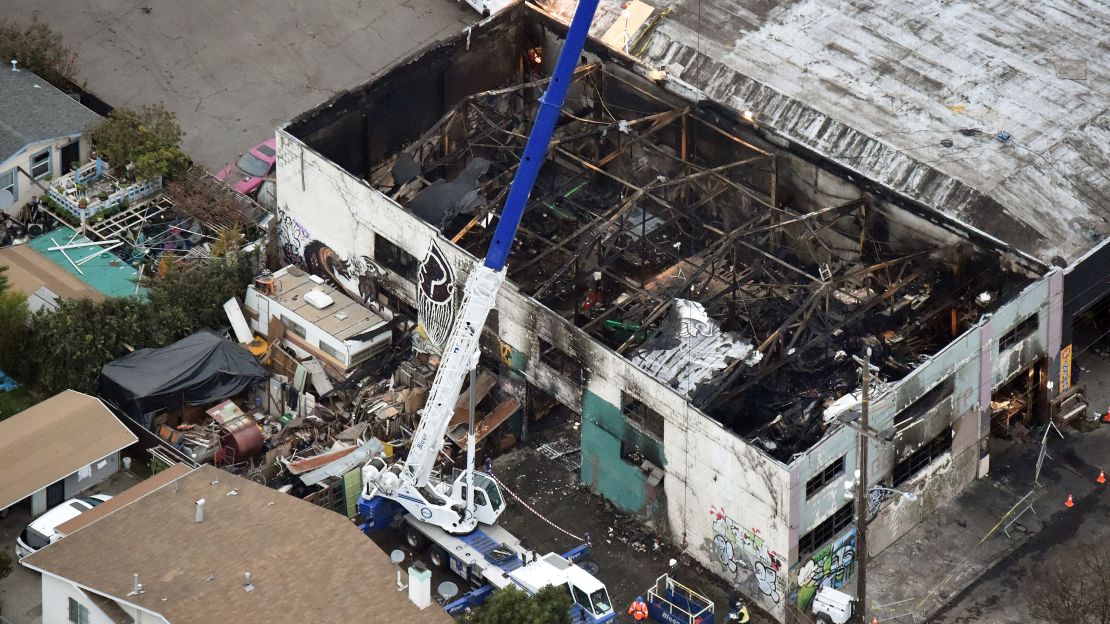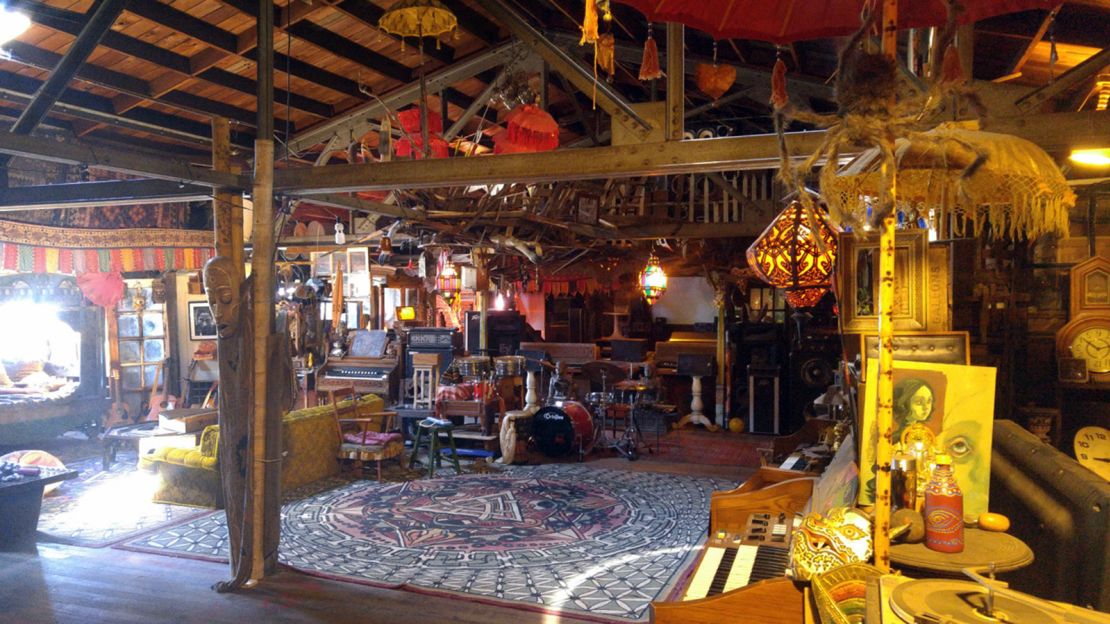Story highlights
NEW: 35 victims have been identified and 30 families notified, official says
Manager's friend: The building looked like a fire hazard from the day he first saw it
Pete Veilleux said he was desperate and had no place to live. His friends Derick Almena and Micah Allison offered him a place to stay at the “Ghost Ship” warehouse, which Almena leased.
But Veilleux refused.
“They had asked me if I would move in several times,” he said Tuesday.
“I needed to move – I was evicted through an owner move-in eviction last year, and they offered me a place last year. It was very, very difficult for me to find a place. … But this was just too risky for me. It was too scary – mainly for fire (risk) and for lack of privacy, also. So I didn’t move in.”
That decision may have saved his life.

At least 36 people are dead after a fire gutted the Oakland warehouse during an electronic dance party Friday night.
Of those victims, 35 have been identified and 30 families have been notified, Alameda County Sheriff’s Sgt. J.D. Nelson said Tuesday.
Fire Chief Teresa Deloach Reed said Tuesday evening that the cause of the fire has yet to be determined. Jill Snyder, special agent in charge with the Bureau of Alcohol, Tobacco, Firearms and Explosives’ San Francisco field division, told CNN there is no evidence the fire was deliberately set.
But there was one bit of good news Tuesday: After searching 90% of the warehouse, firefighters don’t expect the death toll to rise.
Deputy Chief Mark Hoffmann told reporters the department cannot be certain there are no more remains, but he is optimistic there are no more in the remaining areas to be searched.
“Hopefully that’s the 10% where there are no victims,” he said.
Searchers were still dealing with structural issues, but debris removal should be done by midnight Pacific Time, officials said.
‘Ghost Ship’ manager apologizes
Almena, the building’s leaseholder, has come under widespread scrutiny after former tenants and visitors reported unsafe conditions, such as fires sparked by faulty electrical cords.
Almena has not responded to CNN’s request for comment. But in a Tuesday interview with NBC’s “Today” show, Almena apologized to the victims’ families and vehemently defended himself, saying he would have never intentionally endangered any of his tenants.
“I’m only here to say one thing: That I am incredibly sorry,” he told “Today.”
“Everything I did was to make this a stronger, more beautiful community.”
Read more
He said the building was a haven for everyone from “at-risk youth to the gay community to artists who couldn’t perform anywhere.”
Almena denounced claims that he spent more money on parties at the warehouse than on repairs.
“I don’t want to talk about me. I don’t want to talk about profiting. This is profit? The loss of mass life?” he said.
“I’m a father. I laid my three children down there every night.”
But Veilleux, Almena’s friend who refused to move in, said he thought the building was a fire hazard “when I first went in there.”
He said he’s not sure why the conditions were poor, but he has an idea.
“I speculate that people are desperate for housing, both for events and for residences,” he said. “And when people get desperate, safety drops off the list of priorities, unfortunately.”
It’s not clear whether Almena will face criminal charges. Authorities are trying to determine whether there’s any criminal liability and – if so – who is responsible, District Attorney Nancy O’Malley said.
Last month, the warehouse’s owners had received notification of city code violations for hazardous trash and debris, property records show.
Veilleux said he’s not in a position to say whether his friend should face criminal charges.
“There’s enough people out there shouting their opinions about that, and I don’t feel the need to do that,” he said. “I feel the need to address the underlying concerns of the lack of safe, affordable housing.”
Outpouring of support
Hundreds of mourners packed Lake Merritt Pergola in Oakland on Monday night to honor the victims.
“What a heartbreaking last few days it’s been in our town,” said Kevin Blackburn, who posted a photo of the scene.
“I can’t even imagine the pain you’re going through right now. A senseless tragedy that will never make sense. Find solace in each other, in this wacky, beautiful, vibrant, ever-resilient town – Oakland is with you.”
A haven for artists
In addition to the loss of 36 lives, Oakland artists have also lost a place to call home.

The Ghost Ship was a coveted haven in the Bay Area’s gentrifying landscape of skyrocketing rents and disappearing artist spaces. Residents estimate 20 to 25 artists lived there.
Oakland warehouse fire: What was the Ghost Ship?
“It was not a bunch of irresponsible people looking for a drug thrill,” resident Swan Vega, 33, told CNN. “It was a known community house, a place for the creative class to support each other, gain momentum, hash out projects, and just be joyous. And this is the most tragic outcome.”
Mayor Libby Schaaf said Tuesday night that the city would post on its website the 21 complaints against the warehouse and the adjacent lot from the past 30 years. Most of the complaints were against the lot, she said
Darin Ranelletti, Oakland’s interim director of planning and building, has said the city approved permits for the building to be used only as a warehouse, not for residences. City officials didn’t sign off on a special permit for the event, Ranelletti said.
Firefighters found no evidence of sprinklers in the warehouse.
Vega acknowledged that “nobody should’ve been living there.” But she said there’s not enough affordable housing for artists in the Bay Area.
“We need housing,” she said. “We need help.”
CNN’s Paul Vercammen and Dan Simon reported from Oakland; Holly Yan and Max Blau wrote from Atlanta, with additional reporting from Emanuella Grinberg, Steve Almasy, Mayra Cuevas, Eliott C. McLaughlin, Sarah Jorgensen, Keith Allen and Alison Daye.

















